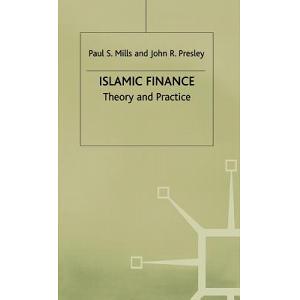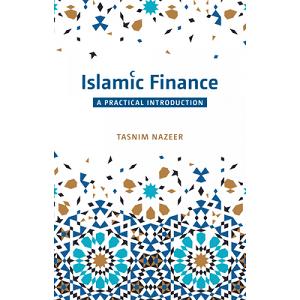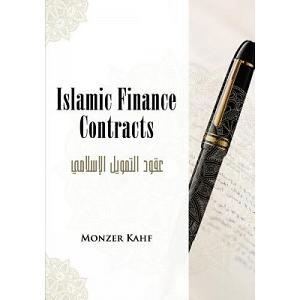Islam permits trade and commerce
and it is governed by Shariah Law. Normally activities in trade and commerce
will involve financial transaction and the existence of contracts. The whole
idea of the contract is to satisfy the consent of both parties to a contract.
From Islamic perspective,
commercial ethics depend primarily on the principles and rules of Islamic faith
and the shariah. Ethics are the integral part of the Shariah which have certain
foundation and principles on which the ethical values are based.
In this articles, the secondary
PROHIBITED elements in the contract of
commercial transactions are:
- Duresh (Ikhrah)
- Mistake (Ghalat)
- Inequality (Ghubn)
- Deception (Taghrir)
- Prohibition of Exploitation (Istighlal)
Duress (Ikhrah): In
literal term duress (Ikhrah) is
derived from the root word ka ra ha which
is constructed as akrahahu meaning to
force someone to do something against his desires. Duress (Ikhrah) in Islamic jurisprudence is to force
someone to do something that he dislikes, but in order to remove the more
harmful aspect, he does against his consent.
For duress to be accepted by
Shariah, it should be a person who is able to implement what he has threatened,
the compeller (mukrih) must be serious in his threat, and the matter
under threat must be very difficult for the compelled to bear.
There is two types of duress:
- Complete Duress (Ikhrah Mulji): is one in which a threat occurs for a homicide, or destruction of an organ of the body, or serious beating that causes fear of destruction of life or an organ, or for a destruction of the whole property of a person, or for permanent imprisonement.
- Incomplete duress (Ikhrah Ghayr Mulji): an incomplete duress is one in which a threat is for matters other than those already mentioned, which is difficult to bear but not devastating, such as a beating that does not cause fear of destruction or destruction of part of the wealth of a person.
Mistake (Ghalat) :Mistake is an assumption about anything but proves to be
inaccurate. Mistake in a contract is that, following its formation, it becomes
clear to a contracting party that the subject matter of the contract
contradicts with what has been contracted for.This mistake could either be in the very essence of a subject, or
in its attribute.
Inequality (Ghubn) :Ghubn
in Islamic jurisprudence is inequality of price and subject matter of a
contract of exchange. that is, one of them becomes less or more than the other.
which was not known at the time of a contract?
Ghubn
is divided into two types : insignificant inequality (ghubn yasir),
and excessive inequality (ghubn fahish)
- Insignificant inequality (ghubn yasir): Ghubn Yasir is regarded light. If the difference between the price at which goods were sold and their real market is so small that the merchants do not generally take it into account in their dealings.
Example: A book worth RM100.00 is sold for RM110.00
- Excessive inequality (ghubn fahish): Ghubn fahish means excessive loss suffered by a party to the contract as a result of concealment or misrepresentation, or deception or fraud practiced by the other. Whether the loss is excessively/exorbitant or not is to be ascertained in view of the market value of subject matter.
Example: A book worth RM100.00 is sold for RM200.00
Deception (Taghrir): Deception (taghrir) in Islamic jurisprudence is to induce a
contracting party to think that it is his interest to take the subject matter
whereas, in fact, it is not so.
Deception is divided into two types : deception related to
statements (tahgrir
qawli) and deception related to deeds (taghrir fi'li). Taghrir
is alternatively called tadlis.
- Deception related to the statement (Taghrir qawli): Taghrir qawli occurs because of the deception of one of two contracting parties or his representative in order to induce the other party to conclude a contract even if it happens with inequality.The deception is forbidden in Islam, but the contracts are not affected and they will remain valid and legally binding except where an inequality occurs for a contracting party because of this deception.
- Deception related to deeds (Taghrir fi'li): Taghrir Fi'li is a deception that occurs through doing something on the subject matter to show it in a condition contradicts its reality.The deception is forbidden in Islam. In addition, it will affect the contract and make it legally not binding. The deceived will have the right to cancel such a contract.
The
Prohibition of Exploitation (Istighlal): There are at least two forms of trade exploitation, which have
attracted Muslim jurist to debate. One is business transaction concluded
between the town tradesmen and the rural tradesmen outside the town. Such
transaction is known as tallaqi al -
rukban. The other is the excessive price, which is term as ghabn al – fahish.
- Tallaqi Al – Rukbhan: The meeting of tradesmen from a town and tradesmen from out of town to conclude a trade may take place outside of town when goods are brought by rural traders to be sold at the market in town. They are intercepted and persuaded by the town traders to sell the goods to them at a price much lower than the normal market price in town. Out of town trader are easily persuaded or deceived perhaps due to their ignorance of the market value of their goods in town or their simple attitude towards trade dealings or their ignorance of marketing techiques.
 |
| Islamic Finance: Theory and Practice |
- Ghabn Al – Fahish (Exessive Price): It is noted earlier that Prophet Muhammad (S.A.W) refused to control price and Umar Ibn Al – Khattab disapproved undercutting. A question is raised and debated by Muslim jurists as to how far a seller has liberty to fix price of goods. In a sale the price of goods may be: below market value, at the market value, just above the market value and much higher than the market value.The first situation does not cause any loss to the buyer and no remedy will be necessary for the buyer does not suffer any loss. In the third situation the buyer may suffer economic loss but no too serious (Ghabn Al – Yasir). In the fourth situation, the buyer may suffer serious economic loss (Ghabn Al – Fahish). Ghabn Al – Fahish has been defined as charging price for an article which is excessively higher than the valuation of appraisers. For example, a buyer who has brought an article for ten dollars or more is considered as having Ghabn Al – Fahish when appraisers subsequently determine its market price or real value at just six dollars or even eight dollars appraised by some other appraisers. For the price is then not within the range of appraisers valuation, it will be accounted as Ghabn Al – Yasir only if the amount paid for the article is at any price between seven to eight dollars as these amounts are still within the range of prices set by the appraisers.
Read More:
INCEIF Essay by Syed Ahmad Hashmi,
Bilal Aziz, Ahmad Farhan & Asyraf Azhar (2014), Prohibited Elements
in Islamic Commercial Law


No comments:
Post a Comment